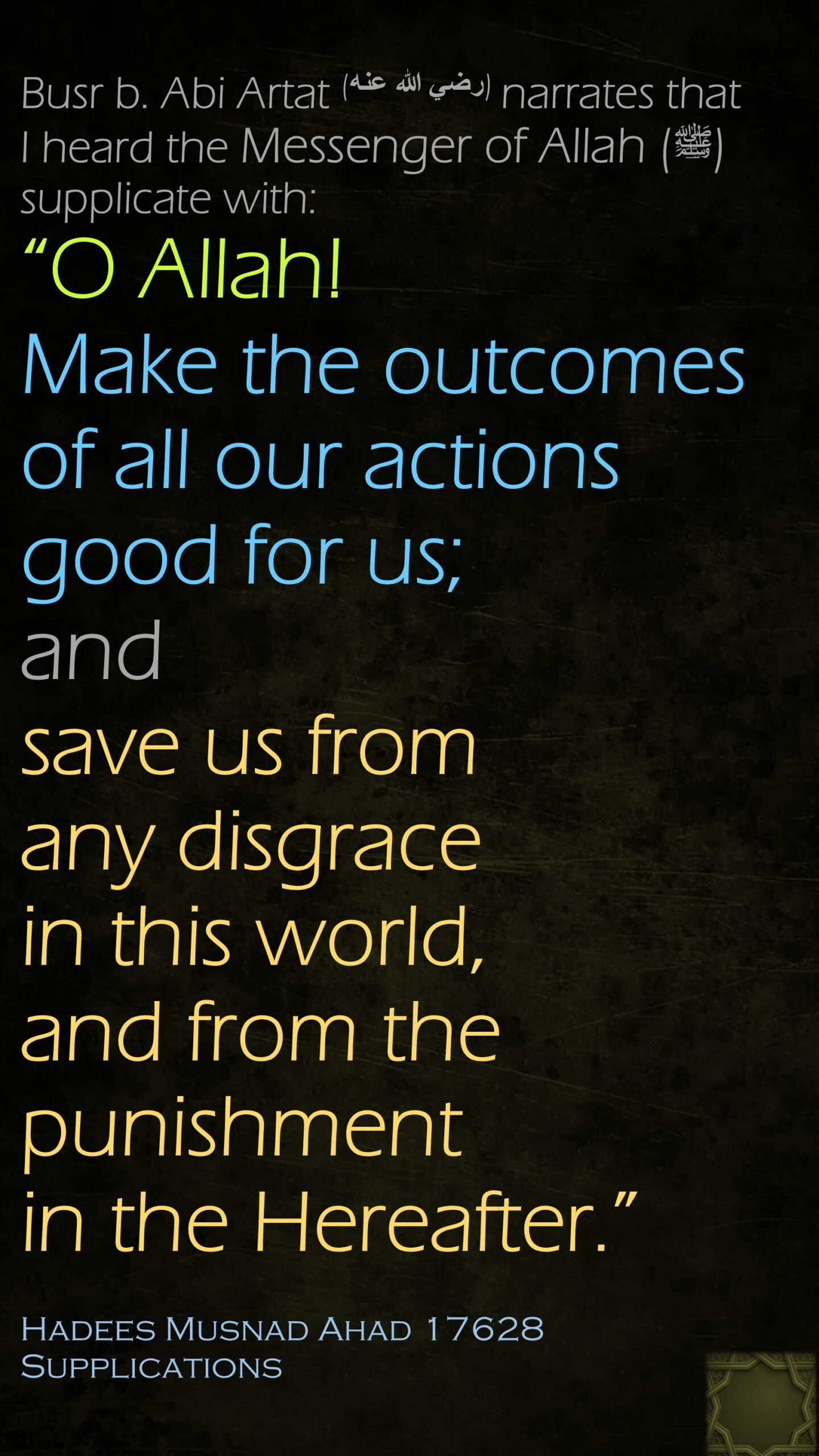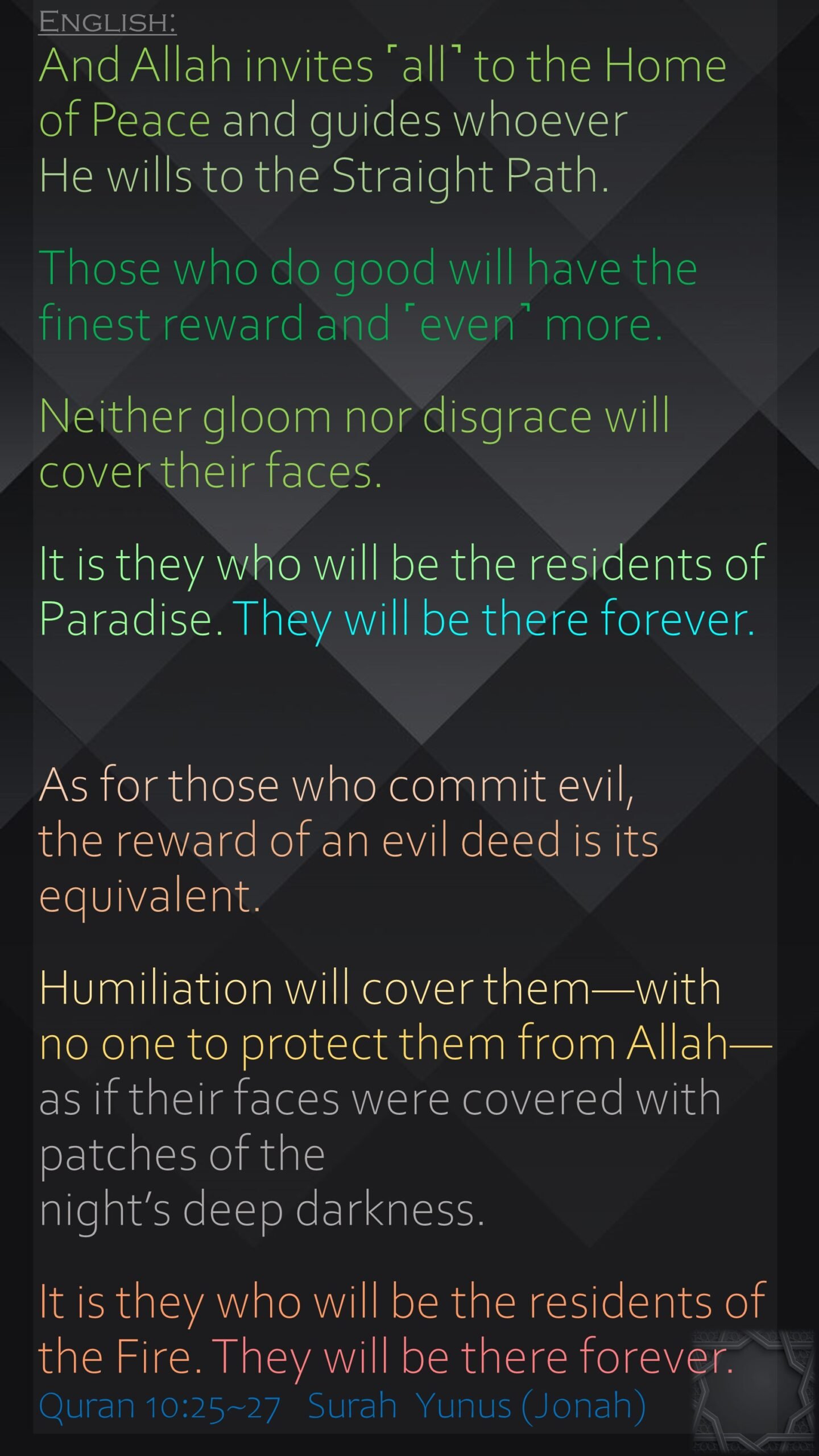30
Aug, 2024
Quran 16:26~29
Islam, Quran 016, 27, 29, Allah, an_nahl, angel, arrogant, associate, ayat, believer, collapse, daily, day of judgement, disbeliever, disgrace, evil, false, forever, full, gate, gift, gods, hell, home, inspirations, islam, islamic, knowledge, misery, Muhammad, oppose, plot, plotted, quran, roof, seize, souls, structure, submission, Surah, the bee, torment, wrong
13
Feb, 2024
Hadees: Ibn-e-Majah 3871
Hadees, Islam 3871, affairs, Al-Khasf, Allah, back, before, behind, bottom, calm, conceal, daily, disgrace, evening, faults, fears, forgive, forgiveness, hereafter, Ibn-e-Majah, inspirations, islam, islamic, morning, Muhammad, protect, refuge, religion, religious, side, supplication, top, unaware, well-being, World, worldly
25
Mar, 2023
Quran 3:190~194
Islam, Quran 190, 191, 192, 193, 194, Allah, alone, alternation, ayat, belief, creation, daily, day, die, disgrace, earth, fail, fire, forgive, Glory, grant, heavens, helper, inspirations, islam, islamic, judgement, lying, never, night, no, pray, proclaim, promise, protect, purpose, quran, reflect, remember, reson, shame, signs, sitting, standing, Surah, torment, true, virtuous, wrongdoer
4
Nov, 2022
Quran 3:26
Islam, Quran alone, authority, ayat, chapter 3, daily, disgrace, everything, give, good, Hand, honour, inspirations, islam, islamic, Lord, Most Capable, quran, remove, Surah, take, Verse 26
5
Sep, 2022
Quran 58:5~6
Islam, Quran account, Al-Mujādilah, all, Allah, ayat, Chapter 058, clear, daily, deeds, defy, disbelievers, disgrace, disputes, forgotten, humilating, inform, inspirations, islam, islamic, messenger, plead, Punishment, quran, resurrect, revelations, Surah, verse 5, Verse 6, witness, woman, المجادلة
11
Jul, 2022
Quran 3:26~27
Islam, Quran Allah, alone, authority, ayat, capable, chapter 3, daily, day, dead, disgrace, everything, give, good, Hands, honor, honour, inspirations, islam, islamic, limit, living, Lord, most, Muhammad, night, pass, PBUH, Prophet, provide, provision, quran, remove, SAWW, Surah, Verse 26, Verse 27, without
14
Apr, 2022










